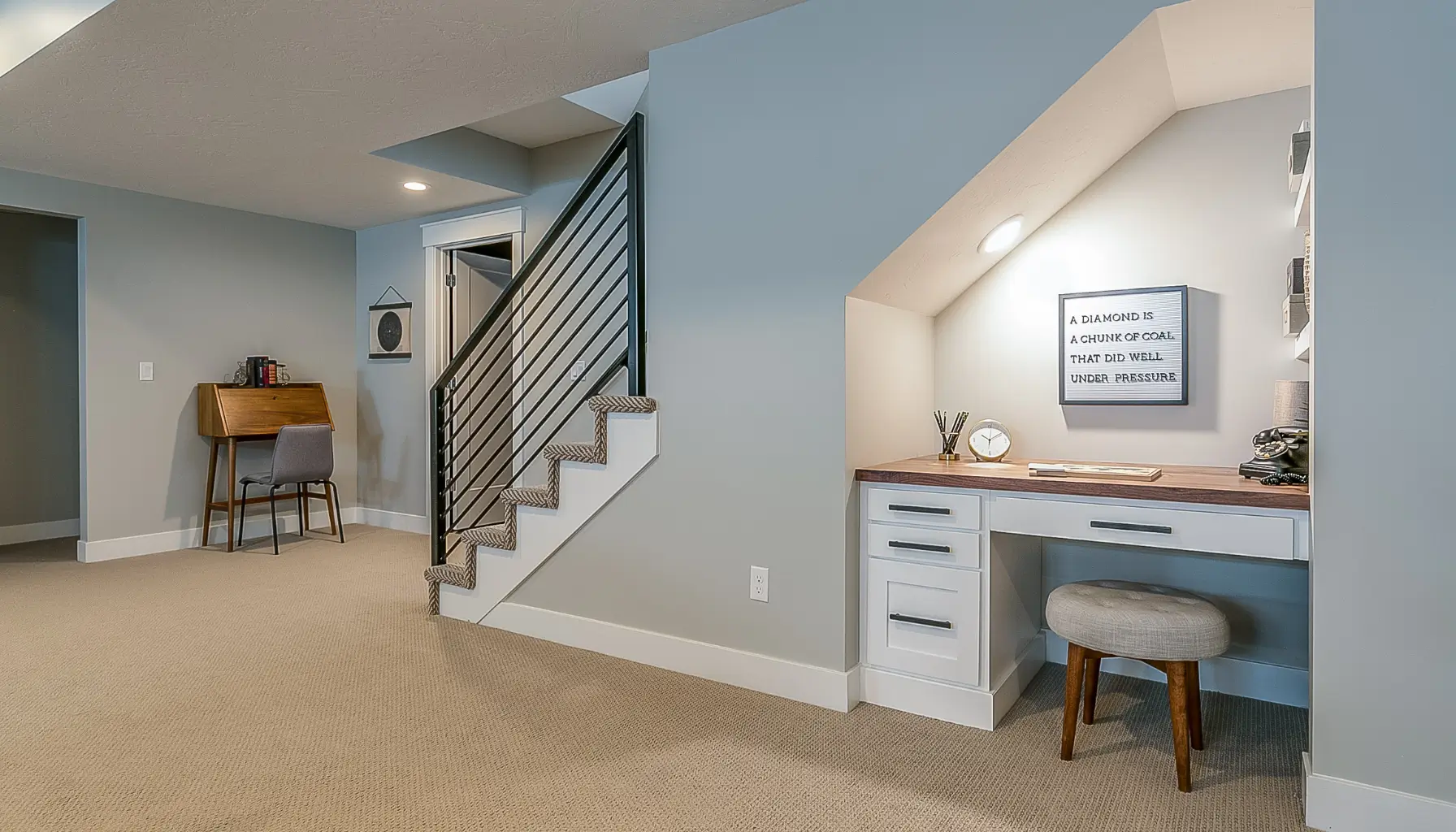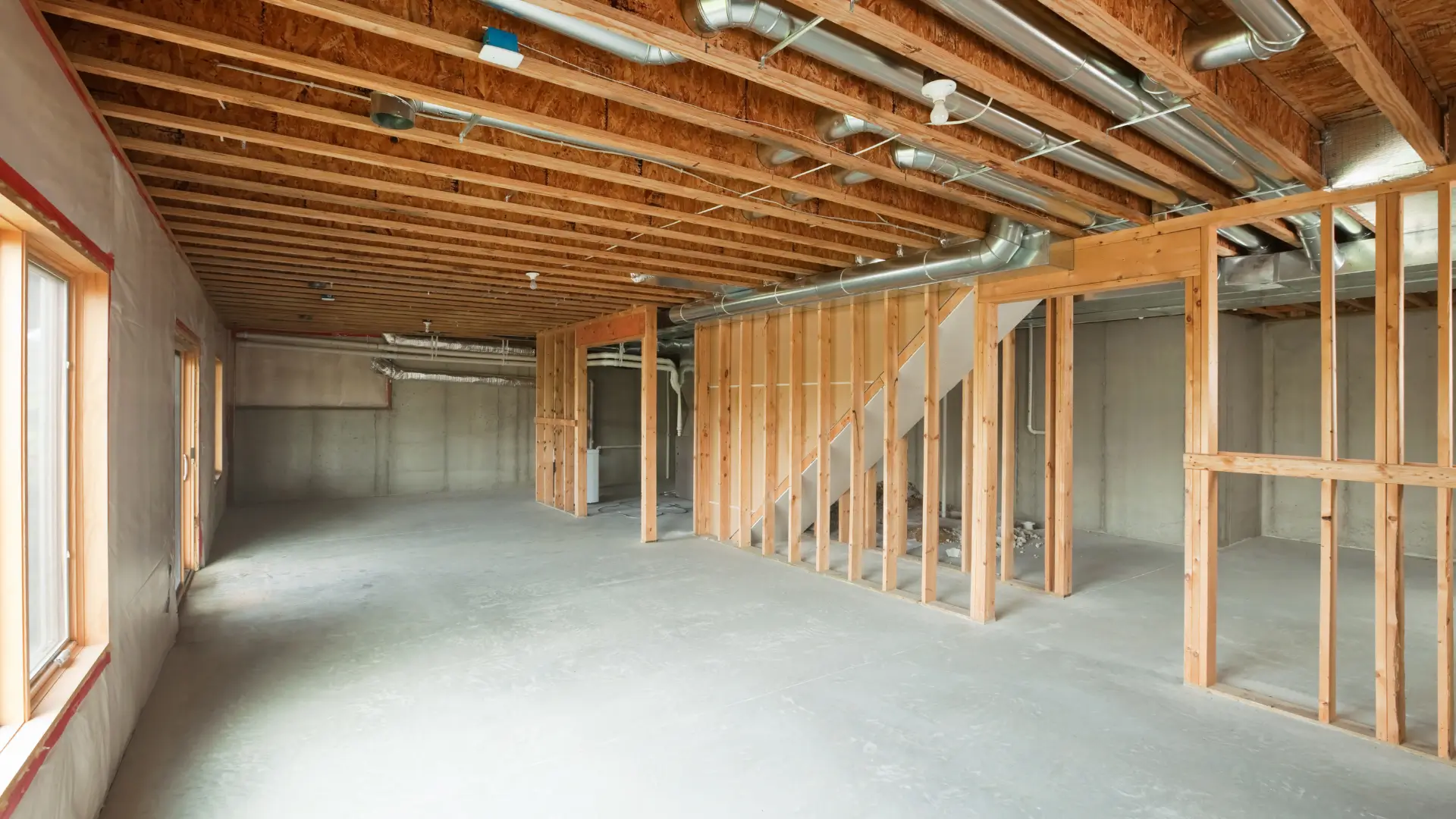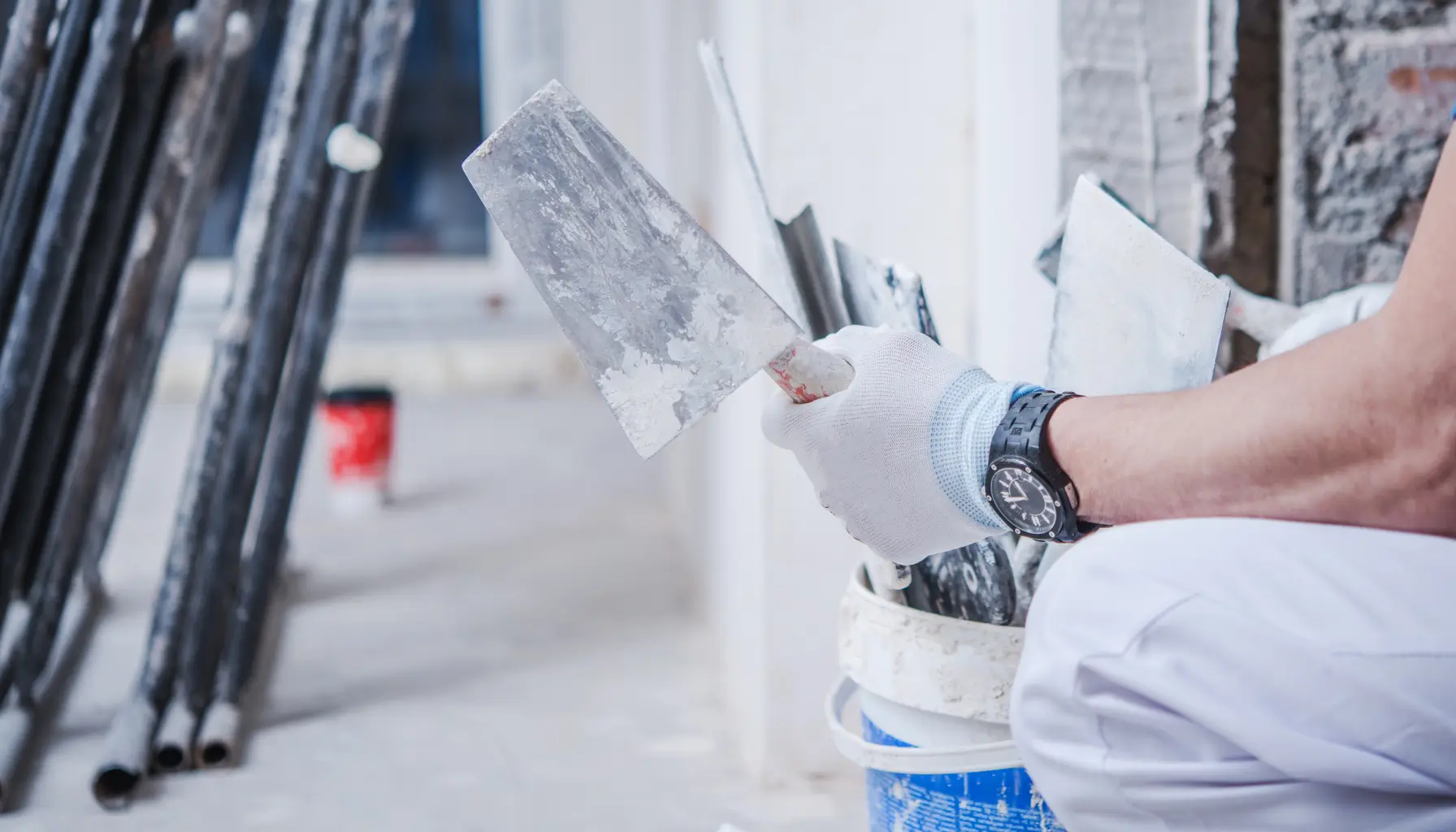When embarking on a basement home improvement project, having the right tools and materials is crucial for success. Whether you’re transforming your basement into a functional living space, a cozy retreat, or an organized storage area, this guide will help you gather everything you need to get started.
Tools for Basement Home Improvement
1. Measuring and Layout Tools
- Tape Measure: Essential for accurate measurements of walls, floors, and other elements.
- Level: Ensures that your surfaces and installations are even and balanced.
- Laser Level: Ideal for precise alignment of fixtures, especially when working alone.
- Chalk Line: Helps mark straight lines on large surfaces like floors and walls.
2. Cutting and Demolition Tools
- Utility Knife: Handy for cutting drywall, insulation, and other materials.
- Reciprocating Saw: Perfect for cutting through various materials during demolition.
- Circular Saw: Useful for making straight cuts in wood and other materials.
- Oscillating Multi-Tool: Versatile for detailed cuts and sanding in tight spaces.
3. Power Tools
- Drill/Driver: Essential for drilling holes and driving screws. Consider a cordless version for mobility.
- Hammer Drill: Necessary for drilling into concrete or masonry walls.
- Miter Saw: Excellent for making precise angled cuts in wood for trim and framing.
- Shop Vac: Keeps your workspace clean by efficiently handling dust and debris.
4. Hand Tools
- Hammer: Basic yet indispensable for framing, nailing, and demolition.
- Screwdrivers: A variety of sizes and types for different screws and tasks.
- Pliers: Useful for gripping, bending, and cutting wires.
- Wrenches: Needed for plumbing tasks and tightening bolts and nuts.
5. Finishing Tools
- Putty Knife: Essential for applying and smoothing joint compound on drywall.
- Paintbrushes and Rollers: Needed for painting walls, ceilings, and trim.
- Sanding Block: Helps achieve a smooth finish on walls and wood surfaces.
Materials for Basement Home Improvement
1. Insulation
- Fiberglass Batts: Commonly used for insulating walls and ceilings to improve energy efficiency.
- Rigid Foam Boards: Provides high R-values and moisture resistance, ideal for basement walls.
- Spray Foam Insulation: Great for sealing gaps and hard-to-reach areas.
2. Drywall and Framing
- Drywall Sheets: Essential for creating walls and ceilings. Look for moisture-resistant options for basements.
- Wood Studs: Used for framing walls. Ensure they are treated for moisture resistance.
- Metal Studs: An alternative to wood, resistant to moisture and pests.
3. Flooring
- Subfloor Panels: Provide a stable base for your finished flooring and add insulation.
- Vinyl Planks: Water-resistant and durable, ideal for basement environments.
- Carpeting: Adds warmth and comfort, choose moisture-resistant options.
4. Plumbing and Electrical
- PVC Pipes and Fittings: Commonly used for basement plumbing projects.
- Electrical Wiring: Ensure you have the correct gauge for your electrical needs.
- Outlets and Switches: Install enough to meet the needs of the space.
5. Lighting and Ventilation
- Recessed Lighting: Saves space and provides ample illumination.
- Ceiling Fans: Helps with air circulation and can improve comfort.
- Dehumidifier: Essential for controlling moisture and preventing mold growth.
6. Paint and Finishes
- Primer: Prepares surfaces for painting and ensures better adhesion.
- Paint: Choose moisture-resistant paints suitable for basement environments.
- Sealants: Use around windows, doors, and other openings to prevent drafts and moisture.
7. Safety Gear
- Safety Glasses: Protects your eyes from dust and debris.
- Dust Masks: Prevents inhalation of dust and harmful particles.
- Gloves: Protects your hands during demolition and construction.
Tips for a Successful Basement Renovation
- Plan Thoroughly: Have a clear vision and plan for your basement. Measure your space and make a detailed layout.
- Budget Wisely: Allocate funds for unexpected expenses. Quality materials and tools are worth the investment.
- Check Local Codes: Ensure your plans comply with local building codes and regulations.
- Waterproofing: Address any moisture issues before starting. Consider installing a sump pump or waterproofing the foundation.
- Professional Help: Don’t hesitate to consult or hire professionals for complex tasks like electrical wiring and plumbing.
By equipping yourself with these essential tools and materials, you’ll be well-prepared to tackle your basement home improvement project efficiently and effectively. Happy renovating!








